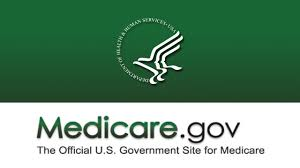WASHINGTON, DC – The annual open enrollment period is when eligible seniors can choose between traditional Medicare or a Medicare Advantage plan. This is going on right now. Medicare Advantage plans are being marketed on radio, television, email and the internet. Their marketing campaign includes telephone and text message solicitations. Open enrollment ends soon, on December 7th.
The Medicare health insurance program was passed by Congress in 1965. It provides health insurance for older Americans and younger people with disabilities and some chronic diseases. These groups were traditionally not eligible for employment-linked group coverage. Medicare covers 60 million Americans including 52 million people aged 65 years old and older. Workers pay into Medicare through payroll deductions. Medicare Part B insurance (for outpatient care including doctors) does not cover all of the fee schedule. It bills beneficiaries for the balance. Supplemental Part B insurance (also called Medigap insurance) is available from private insurers. Medicare Part D insurance, also available through private insurers, covers much of the cost for many prescription drugs.
Congress passed a bill in 1985 which allows Medicare beneficiaries to receive healthcare services through private-health insurance plans. This is to referred to as Medicare Part C, also known as Medicare Advantage plans. It covers Parts A (hospital insurance), B and often Part D.
The private-health insurers receive a monthly risk-adjusted payment from the federal Medicare program to cover each beneficiary’s care. In theory, the federal government can save money by taking advantage of an efficiently managed health care system overseen by the private insurers if the monthly payments to them are lower than the actual cost of running the program. However, private insurers are incentivized to run the program at a lower cost than the payment from federal government. Judging from the large number Medicare Advantage plans on the market, these plans look like a money maker for the private insurance companies.
A large majority of Medicare beneficiaries are satisfied with their care, regardless of the choice of traditional Medicare or Medicare Advantage. There are advantages and disadvantages to each.
Under traditional Medicare, beneficiaries have access to a wide range of doctors and hospitals across the country. There is generally no need for prior authorization for medical services. Enrollees pay a monthly premium, need to meet a deductible and may elect to obtain supplemental health insurance to further limit their costs. According to the Kaiser Family Foundation, traditional Medicare beneficiaries with supplemental insurance had fewer cost problems than Medicare Advantage beneficiaries.
Medicare Advantage plans cover about 48% of all Medicare enrollees. Total enrollment has more than doubled over the past 10 years. There are 43 plans to choose from for next year. The plans tout perks not offered by traditional Medicare such as a limit on out-of-pocket costs, vision and dental benefits, and gym memberships. Their premiums are generally lower than traditional Medicare.
Be aware of possible disadvantages with Medicare Advantage plans. The plans restrict networks of doctors and hospitals for its beneficiaries, mandate authorization for some services (like imaging studies) and require referrals to specialists. A recent report from the Office of the Inspector General found that Medicare Advantage plans routinely rejected claims that should have been paid and denied services that physician reviewers found to be medically necessary. The out-of-pocket maximum limit may be higher than traditional Medicare. Persons requiring medical care while away from home may not have their health care covered locally because local providers may be out-of-network. It is important to understand what is covered in this situation. According to research at Brown University, many high medical needs patients were more likely to switch over to traditional Medicare in order to avoid restricted networks and prior authorization.
You may not be able to switch back to your old Medicare health plan if you don’t like your new plan so be careful with making your decision. It’s generally fine to switch between Medicare Advantage plans. However, switching from traditional Medicare to an Advantage plan may not allow you to switch back and retain your old supplemental insurance policy. The supplemental insurance company can deny your application or charge higher prices based upon pre-existing conditions unless the switch is within a year for a first-time transfer. However, some states have different rules and guarantee supplemental insurance coverage at set prices.
Choosing the best Medicare plan for you can be confusing. The Medicare.gov website, 1-800-MEDICARE and federally funded State Health Insurance Assistance Programs are good resources to help you make your decision. David Lipschultz, the associate director of the Center for Medicare Advocacy, told the New York Times, that the assistance programs ”are unbiased and don’t have a pecuniary interest in your decision making.” Appointments tend to be hard to come by this time of year, so it’s best not to delay if you need some help.
Listen to the full report below:
Contact: Dr. Dick Needleman, Health reporter, 103.3 AshevilleFM, [email protected]
More Posts for Show: Asheville FM News Hour
